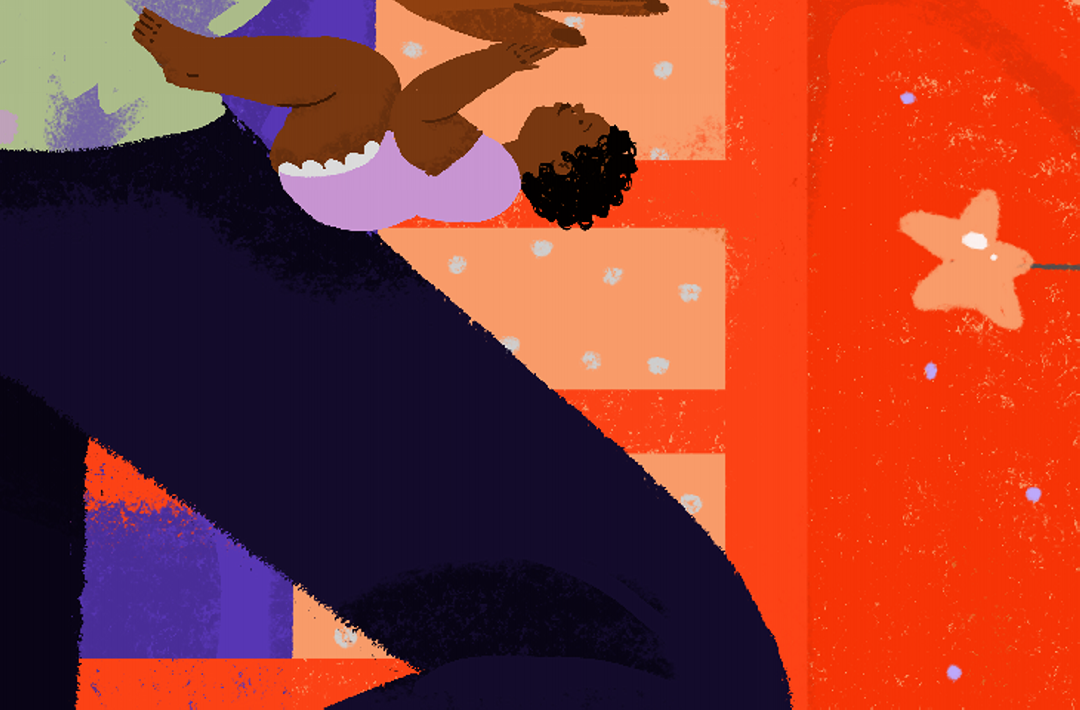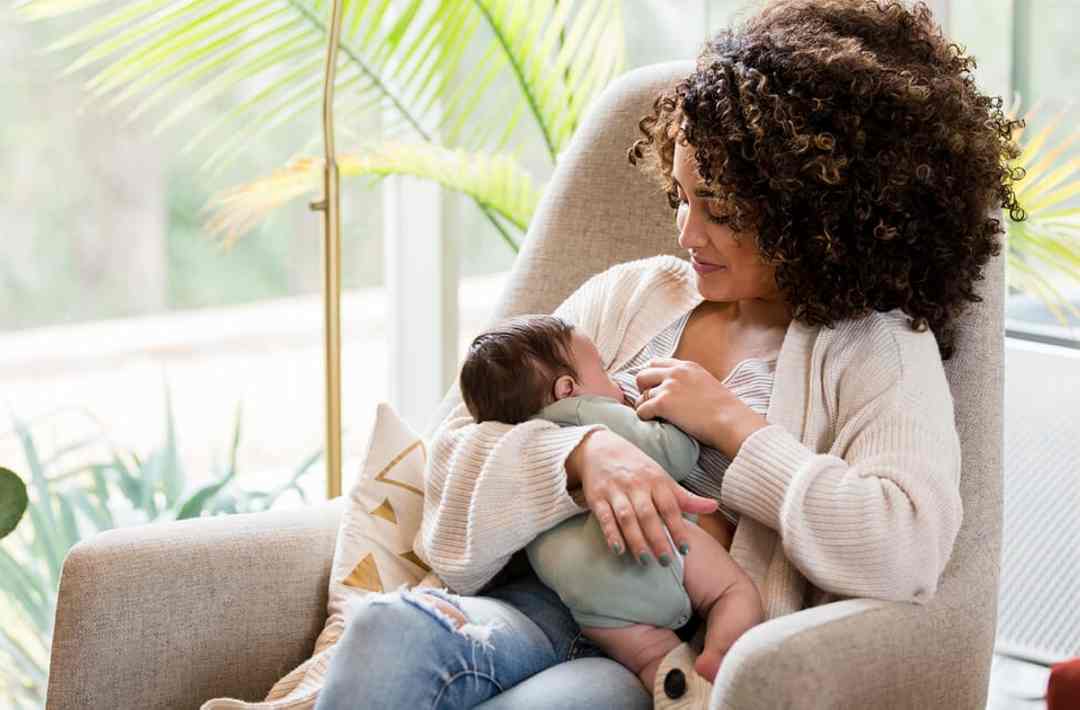
This story is part of SELF’s ongoing series exploring black maternal mortality. You can find the rest of the series here.
My assignment for this story was originally to highlight people who have dedicated themselves to combating the black maternal mortality crisis. But the more I spoke to those very people, the more I saw one major thread: Individuals doing this life-saving work are much more interested in shining a spotlight on the organizations they’ve founded and partnered with rather than just talking about themselves.
These groups—and the people behind them—are crucial in helping to inform systemic changes like legislation and hospital policies, but in many ways, they’re also committed to making sure black parents and children can live their fullest, healthiest lives long after childbirth.
A lot of the conversation surrounding the fact that black moms are dying at over three times the rate of white ones focuses on getting a new parent and their baby home from the hospital in good health. This is just one piece of the puzzle. Ensuring adequate, supportive, and culturally competent care from conception to far past the postpartum period is crucial.
“Nothing is happening in a vacuum,” Carmen Mojica, a doula and community health worker in the Bronx, tells SELF. “We might think giving a mother a midwife is effective, but if she can’t get to that midwife and her housing is unstable and she’s worried about her job and she wants to breastfeed but her job isn’t supportive? Making sure that she’s alive is the bare minimum.”
That reality is incredibly frustrating. And it can feel at times like there is so much to do, so much to fix, and so many unanswered questions when it comes to racial disparities in maternal care. All of that is true, but it’s also true that there are several organizations that are currently and consistently doing the hard work of pushing for holistic solutions. If you’re looking for a place to get information, get help, or get involved, here are nine organizations on the frontlines of this fight:
1. The National Birth Equity Collaborative (NBEC)
The NBEC is focused on overhauling the systems and structures that contribute to maternal deaths. “We’re not blaming moms or blaming women,” ob-gyn Joia Crear-Perry, M.D., founder and president of the NBEC, tells SELF. Instead, the NBEC is analyzing which large-scale issues are at the crux of black maternal mortality, then addressing them.
For instance, the NBEC provides racial equity training sessions to reduce implicit bias—a known factor that can cloud medical providers’ judgment when dealing with black pregnant and postpartum people. The NBEC also provides training and assistance for other organizations working on black maternal mortality. And to make sure these kinds of solutions will actually work, Dr. Crear-Perry is invested in gathering more comprehensive data not just on maternal deaths, but also on birth outcomes, trauma, and health in the postpartum period.
“We have not done a good job of counting,” says Dr. Crear-Perry, who is also a fellow of The American College of Obstetricians and Gynecologists. “Some of the solutions require us to [research] and get the real circumstances of people’s lives.”
As an example, Dr. Crear-Perry cites a 2016 American Journal of Public Health study analyzing the cases of 85 people who died during or within a year of pregnancy between the years 2010 and 2014 in Philadelphia. Just over half the deaths happened because of medical complications, and of those, most were due to cardiovascular issues—“one of those things you assume happens in pregnancy and you can’t control,” Dr. Crear-Perry says. But there were so many other causes of death that told a different story. After medical complications, unintentional injury was the next biggest cause of death, with people who died of drug overdoses making up the biggest portion of those cases. Substance use was associated in some way with 46 percent of the non-overdose deaths. And even beyond the three people who died by suicide, 39 percent of the people who died had a history of serious mental illness.
This all points to why there needs to be systemic change in how this country treats not only pregnant people but also new mothers, Dr. Crear-Perry says. “We don’t have paid leave in the United States, we don’t have free childcare, and those are structural choices,” she says. So is the glaring lack of affordable, accessible, good treatment and support for substance use disorders and mental health conditions. It’s all connected when it comes to saving black moms.
Learn more about the National Birth Equity Collaborative.
2. Sista Midwife Productions and the Sista Midwife Directory
Certified nurse-midwife Nicole Deggins, the founder of Sista Midwife Productions, originally wanted to become an orthopedist. Then she spent time in the labor and delivery ward while working towards her Master’s of Science in Nursing. There, she saw what she viewed as a largely untapped opportunity to connect with patients in a deeper way, Deggins, who also has a Master’s in Public Health, tells SELF. She immediately realized that she wanted to do birth work, so she pivoted to midwifery. (Quick note: There are various levels of midwife certification, but in general, a midwife is a birth worker with medical training, and a doula is a birth worker who focuses on non-clinical emotional support and advocacy.)
While working in this sphere, Deggins met Shafia Monroe, who founded the International Center for Traditional Childbearing (ICTC) to boost the prevalence of midwives and doulas of color and bring down pregnancy-related deaths.
“Connecting with Mama Shafia gave me an opportunity to learn more about the legacy of black midwives and doing community birth work,” Deggins tells SELF. “I decided to start Sista Midwife Productions as an organization to reach families and do childbirth education.”
Deggins offers online and in-person doula training along with community events for people to learn about pregnancy, birth, and more. She also started the Sista Midwife Directory, which lists black midwives, doulas, lactation specialists and more by their geographic location. She says, “[I’ve seen] so many emails and Facebook posts and Twitter posts saying, ‘Hey, is there a black midwife in this city? A black doula?’” Black birth workers can add their information to this database for free.
Most Popular
- 5 Less Obvious Signs of Seasonal Depression You Should Definitely Pay Attention To
By Maggie O’Neill
- 42 Creative Valentine’s Day Gifts for Guys
By Sarah Madaus
- Just Some Fun Sex Toys You and Your Partner Will Love
By Gabrielle Kassel
“There are multiple pieces of the solution, and one small sliver of the pie is having providers that look like you,” Deggins says.
Learn more about Sista Midwife Productions and the Sista Midwife Directory.
3. Black Mamas Matter Alliance (BMMA)
BMMA developed out of a partnership between the Center for Reproductive Rights (CRR) and SisterSong Women of Color Reproductive Justice Collective. The alliance helps advocate for better legislation to reduce black maternal mortality, highlights necessary areas of research, and spreads information about the social determinants of health that influence outcomes like traumatic birth or maternal and infant mortality. To bolster its efforts, BMMA created an impressively robust toolkit that offers a thorough exploration of factors contributing to black maternal health outcomes along with potential solutions.
The organization also urges legislators and health care providers to center the work of community groups both historically and today.
“There’s almost a complete erasure of black folks who have been doing this work around maternity care for a very long time,” Angela Doyinsola Aina, M.P.H., BMMA co-director, tells SELF. “[That is why] we even came about as an alliance—really wanting to uplift the community-based ways of doing things as it relates to our health.”
Similar to other leaders in this movement, Doyinsola Aina is adamant about where the culpability behind black maternal mortality really lies. “We should always raise that these issues are not about individual blame,” Doyinsola Aina stresses. “It’s the failure of our systems, our environment, our political landscape over the course of 30-plus years. We need to be moving forward and opening up doors of opportunity, resources, and support for those that do this work on the day-to-day basis at the community level.”
Learn more about the Black Mamas Matter Alliance.
4. MomsRising
MomsRising is a nonpartisan organization pushing for cultural and legislative change around various pressing issues, like gun safety, paid family leave, and maternal justice. MomsRising members serve on state maternal mortality review committees, partner with legislators on local and state policies, and call, visit, and write to elected leaders, among other ventures.
“We are working on access to birthing professionals outside of doctors [and] pushing to open up reimbursements so women can use midwives and doulas,” Monifa Bandele, the organization’s vice president and chief partnership and equity officer, tells SELF. As Bandele notes, Medicaid covers nearly half of birthing payments in the United States, meaning that a lot of people giving birth don’t have the luxury of seeking out and paying for the birthing care of their choosing.
MomsRising members also share important and relevant stories at town halls and rallies. Bandele says that this can make a tremendous difference when it comes to spreading awareness and pushing for legislation. We’ve definitely seen this with high-profile women like Serena Williams and Beyoncé publicly discussing their pregnancy and childbirth complications—those stories can reach millions of people who might not know about racial disparities in maternal outcomes.
Most Popular
- 5 Less Obvious Signs of Seasonal Depression You Should Definitely Pay Attention To
By Maggie O’Neill
- 42 Creative Valentine’s Day Gifts for Guys
By Sarah Madaus
- Just Some Fun Sex Toys You and Your Partner Will Love
By Gabrielle Kassel
“People say: ‘Black women are dying because they are not healthy, they don’t know where to go, what to do, what to ask for,” Bandele says. But, as she points out, health care providers ignored even Serena Williams when she tried to advocate for herself, leading Bandele to ask the all-important question: “What’s actually happening in the health care system?”
Learn more about MomsRising.
5. The Shades of Blue Project
When Kay Matthews delivered her daughter stillborn in 2013, she desperately needed support for her mental health. Now, through her Houston-based organization The Shades of Blue Project, she’s helping other new parents in her community get connections to social services, receive referrals for mental health care, and access a support group she runs.
“We help women before, during, and after childbirth, and our focus is maternal mental health in underserved communities,” Matthews tells SELF.
Since journaling as a healing method is a big component of The Shades of Blue Project, Matthews designed a structured journal with prompts relating to mental health. She also runs quarterly programs where eight to 10 parents meet each week to complete journal exercises and talk about what’s worrying them. (Matthews hopes to license this journal program so it can be used by other organizations across the country.) Sometimes she even brings in experts for sessions on topics like sleep or cooking demos. Ultimately, the program’s goal is to build an understanding, supportive community for new parents.
“You’re making a commitment to your mental health, which will be put onto the back burner” as a pregnant person and new parent, she says. “We build off the relationship that women come in needing. They become friends … They are connected to each other.”
Learn more about The Shades of Blue Project.
6. The Blavatnik Family Women’s Health Research Institute
Ob-gyn Elizabeth Howell, M.D., is the director of the Blavatnik Family Women’s Health Research Institute at the Icahn School of Medicine at Mount Sinai, where she publishes copious research on motherhood. Dr. Howell, who also has a Master’s in Public Policy, co-authored research on how black and Hispanic women are more likely to report postpartum depression symptoms, why many moms don’t feel prepared for emotional or physical postpartum issues, and how life-threatening maternal complications occur more frequently among black women than their white counterparts, to name a few topics.
“We’ve done a lot of work to look at how quality of care affects severe maternal morbidity,” Dr. Howell says. (This means receiving a possibly life-threatening diagnosis or needing a life-saving procedure during or soon after pregnancy.) One key recent finding: Black birthing folks are more likely to give birth in certain hospitals, and these hospitals have higher rates of severe maternal morbidity overall.
For Dr. Howell, the next question is what is going on at those hospitals to cause these outcomes, whether it’s the volume of patients, percent of patients on Medicaid, the use (or not) of evidence-based practices, communication, all of the above, or other factors, too.
Most Popular
- 5 Less Obvious Signs of Seasonal Depression You Should Definitely Pay Attention To
By Maggie O’Neill
- 42 Creative Valentine’s Day Gifts for Guys
By Sarah Madaus
- Just Some Fun Sex Toys You and Your Partner Will Love
By Gabrielle Kassel
More research is necessary to know for sure. In the meantime, Dr. Howell recommends a slate of strategies for tackling poor maternal health: implicit bias training for medical personnel, gathering more data, bringing more community health workers into the conversation, and standardizing best practices. She also stresses the importance of high-quality and accessible postpartum care.
“Women need to know they need to come back for care, and we need to put things in place to help them to do so,” she says. “This is a care continuum, not just labor and delivery.”
Learn more about the Blavatnik Family Women’s Health Research Institute.
7. The Black Maternal Health Caucus
Congresswomen Alma Adams and Lauren Underwood founded the Black Maternal Health Caucus (BMHC) in April 2019 to improve health outcomes for black pregnant and postpartum people. According to a press release from Adams’ office, the caucus “aims to raise awareness within Congress to establish black maternal health as a national priority and explore and advocate for effective, evidence-based, culturally-competent policies and best practices for health outcomes for black mothers.”
The caucus is in its early stages, but several politicians (including 2020 presidential hopefuls) have stated their support. On July 12, the caucus held a stakeholder summit where 32 different organizations focused on black maternal health convened to discuss their recommendations.
“We have so much work to do to solve this crisis and I’m thrilled so many thoughtful leaders and advocates are engaged, willing, and ready to join the Caucus in this charge,” Congresswoman Underwood said in a press release.
8. Mama Glow
After Latham Thomas safely, joyfully gave birth to her son in 2003, she remembers thinking, I have to protect this experience for women. No one told me it could be like this. She wanted all people giving birth to have access to the same experience, she tells SELF.
As a result, Thomas launched Mama Glow, a resource to share information for would-be moms. She also became a doula, and Mama Glow now has a doula immersion program to help train new birth workers. The training focuses on how doulas can work within the existing medical system to help their clients advocate for themselves, ask questions, and seek support.
“When we look at all this, I see it as an atrocity,” Thomas says. “Women need to feel empowered, not impaired to act. My biggest piece of advice to them: This is a really joyful time. It’s an empowering time, it’s a transformative time. Lead with that energy and be prepared for all outcomes, but we don’t want to get paralyzed in the fear of what we read every day.”
Learn more about Mama Glow.
9. Sésé Doula Services
Nicole JeanBaptiste is more than a trained lactation consultant and doula who learned with Ancient Song Doula Services and now owns Sésé Doula Services in the Bronx. (“Sésé” translates into “sister” in St. Lucian Creole, the site says.) She’s also an oral historian with a Master’s degree in the subject from Columbia University. Alongside her birth work, JeanBaptiste is gathering stories about birth work and birthing from black and Native women to provide historical context and help us understand how we got to this point in maternal care.
“Traditionally, the practice of childbirth in this country was led by black midwives,” JeanBaptiste tells SELF, along with Indigenous midwives as well. “My hunch was that, as a result of what became a smear campaign against traditional and lay midwives … we started to lose lots of the traditions that were held for so long.”
According to JeanBaptiste, birth workers from older generations have invaluable knowledge to share about community traditions (like elders talking to younger people about what to expect during childbirth), birthing practices (like how to potentially deliver a breech baby vaginally), and how changes in this landscape may affect maternal mortality and morbidity now that we have more medical knowledge than ever before.
“The feedback [from birth workers today] is that this story needs to be told,” she says. “They are ready. They have been waiting.”
Learn more about Sésé Doula Services.




